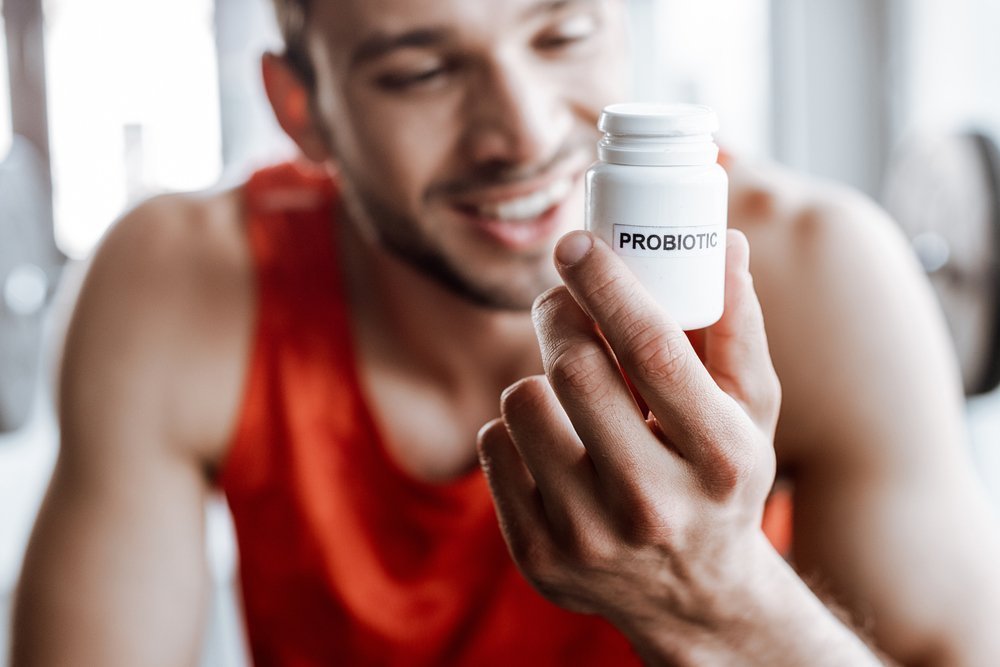Why take probiotics?
More Than a Gut Feeling
Experts estimate that there are between 39 trillion and 300 trillion bacteria living inside of us and though much of these bacteria are harmless and even helpful, there are also bad bacteria that left to their own devices can end up being very harmful. For this reason, probiotics can be a very useful tool in upping the quota of good guys in the system.
The Lowdown on Probiotics
Probiotics can be found in fermented food or taken in supplement form and they essentially provide friendly bacteria to help colonize the gut with good microorganisms.
Taking probiotics promotes a healthy balance of gut bacteria which can be helpful in matters of weight loss, digestive health, immune function and more.
“Our guts are made up of a diverse microbiome filled with different kinds of bacteria, viruses, fungi and even parasites, and when they are all living together in harmony, this can definitely benefit our health,” explains Neomed’s Functional Medicine Practitioner and Nutritionist, Tina Christoudias Spyrou.
“The problems arise when dysbiosis occurs. So, for example, if you eat a very refined diet, if you're very stressed out if your digestion isn't up to par if you have overgrowths of any kind if you have foods that bother you, all of these things could lead to a dysbiosis and affect the delicate balance of the microbiome.
“What can happen here is that we have too many bad bacteria compared to the good guys – and the good guys are the ones that actually protect our immune system.”
Probiotics: Under the Microscope
Probiotics are readily available in supplement form, but a number of foods prepared by bacterial fermentation also provide the good guys with body needs. Probiotic foods include yoghurt, miso soup, kefir, sauerkraut, tempeh, pickled vegetables, kombucha and kimchi.
Taking a closer look at probiotics, the most common probiotic bacteria are Lactobacillus, Bifidobacterium, Saccharomyces, Streptococcus, Enterococcus, Escherichia and Bacillus.
Because different probiotics have been found to address different health conditions, it is essential to make the right choice when looking at probiotics and the simple truth is, it’s not as easy as popping a pill.
“Perhaps you're a person who is constantly bloated – maybe you have indigestion, acid reflux or trouble with constipation – then probiotics may actually make things worse initially,” says Tina. “So, taking probiotics from the beginning may not be the solution for you. This is why it's important to work with a qualified practitioner to understand when to take probiotics.”
The Pros of Probiotics
When the natural balance of gut bacteria is knocked out of sync – perhaps due to illness, antibiotics or poor diet, among other causes – it can lead to digestive issues, allergies, obesity and even mental health problems. So, even though probiotics should only be considered after proper consultation, it’s worth noting the positives. Benefits include:
A stronger immune system.
Probiotics can be a gift to the immune system, boosting immune cells such as IgA-producing cells, T lymphocytes and natural killer cells. Some probiotics also promote the production of natural antibodies in the body and reduce the risk of respiratory infections as well as urinary tract infections.
“There's tons of research now coming out that show how probiotics boost and help modulate the immune system, keeping it in balance,” says Tina.
Diarrhoea buster.
Probiotics are widely known for their ability to prevent diarrhoea or reduce its severity with several studies suggesting probiotic use brings a reduced risk of antibiotic-associated diarrhoea.
“Typically, problems with diarrhoea happen because of an imbalance in the microbiome,” says Tina, “so replenishing with plenty of probiotics is the way to go there. Again, you'll need to work with a qualified practitioner so you understand when you need probiotics.”
Better Mental Health
The link between the gut and the brain is becoming increasingly well documented and a number of studies have found that probiotic supplements can improve some mental health disorders.
“Neurotransmitters are produced by the good bacteria in the gut,” says Tina. “So, for many people who have issues with depression and anxiety, improving their diet or taking the right probiotics in order to feed these good bacteria can help to alleviate such conditions.”
Good for the heart.
Probiotics have been shown to lower blood pressure while some lactic acid-producing bacteria reduce cholesterol by breaking down bile in the gut, thereby preventing it from being reabsorbed in the gut, where it can enter the blood as cholesterol.
Relief from allergies and eczema.
Certain probiotic strains may reduce the severity of eczema in young children while others have been shown to reduce inflammatory responses in people with milk or dairy allergies.
Help with digestive disorders.
Probiotics can help ease the symptoms of inflammatory bowel diseases such as ulcerative colitis as well as the symptoms of irritable bowel syndrome (IBS).
“If you're having issues with digestion, probiotics can really help,” says Tina.
Weight loss aid.
Some probiotics can make you feel fuller for longer, burn more calories and store less fat. Studies have also shown that probiotics can help reduce stubborn belly fat.
First Thing’s First
While probiotics can be an essential aid to good health, they are only that – an aid.
“Typically, what I tell most patients is that it's better to get the digestion handled first before they start adding probiotics to their diet,” says Tina.
Diet plays a huge part in intestinal homeostasis since it conditions the microbiome, and a balanced intestinal terrain creates a healthy intestinal environment.
“At Neomed we assess the digestive problems of our guests, fix their diets and suggest any supplements they might need to help with digestion. We give them the tools to enable them to go home and do the work.”
While self-help to better digestive health is perfectly within most people’s reach, some will need expert advice and medical supervision to tackle severe digestive problems and their underlying causes. And because no two people have the exact same gut flora, each treatment programme at Neomed is tailored to the individual after assessment.
Following a stool and blood analysis, we create a personalised Digestive Health Programme to thoroughly cleanse the gastrointestinal tract, enhance digestive secretions, regulate motility and restore the gut microbiome and nutritional and mineral absorption. Our therapies include natural herbal enemas, essential oils and high-quality absorbable supplements along with state-of-the-art therapies designed to heal and restore proper digestive function.
Colonic hydrotherapy is also one of the most effective ways to reduce the toxic burden in the colon by removing excess impacted faecal matter in a short time frame gently using only purified water and massage techniques. Colonic hydrotherapy has been shown to prevent and relieve constipation; improve the digestive system and hydration; help with weight loss; increase energy levels and immunity; and aid the elimination of parasites, fungi and all the bad bacteria that stops the good guys from doing their job.
For more information on our digestive health packages or for further advice on nutrition and probiotics, please fill in the form below:







